"Als ich das erste Mal in Chemnitz ankam, standen hier Leute in Wehrmachts-T-Shirts – wie willst du die zurückgewinnen?!"
Es ist nicht erst seit Montagabend klar, dass Chemnitz in besonderem Masse ein Problem mit Rechtsextremismus und Ausländerhass hat. Die rechte Gruppierung "Pro Chemnitz" stellt drei Stadträte, die Mörder des NSU fanden bei Chemnitz Unterschlupf, und bei der Bundestagswahl 2017 holte die AfD in Chemnitz fast ein Viertel der Stimmen.
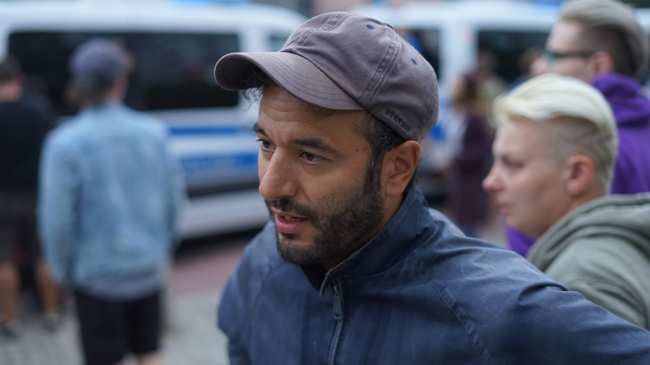
Seit dem vergangenen Wochenende steht Chemnitz für viele in einer Reihe mit Rostock-Lichtenhagen, Hoyerswerda oder Freital. Eine Art ostdeutscher Schandfleck, in dem der Staat sein Gewaltmonopol verloren hat, Rechtsextreme ungehindert auf Menschenjagd gehen und rassistische Positionen auch viele Bürger nicht mehr abschrecken.
Auch bei VICE: Meine Flucht aus Syrien
Zu Jahresbeginn betrug der Anteil der Ausländer in Chemnitz laut Freier Presse 7,6 Prozent, der Anteil der Geflüchteten, die ebenfalls unter diese Gruppe fallen, 2,4 Prozent. Bei 240.000 Einwohnern entspricht das etwa 19.000 Ausländern – davon 5.900 Geflüchtete. Ihnen empfahl die Opferberatung RAA Sachsen vor dem Aufmarsch am Montag, "die Innenstadt ab Nachmittag grossflächig zu meiden". Man rechne mit "gewaltbereiten Neonazis und Rassisten, die gezielt auf Geflüchtete und Gegendemonstrante_innen losgehen wollen".
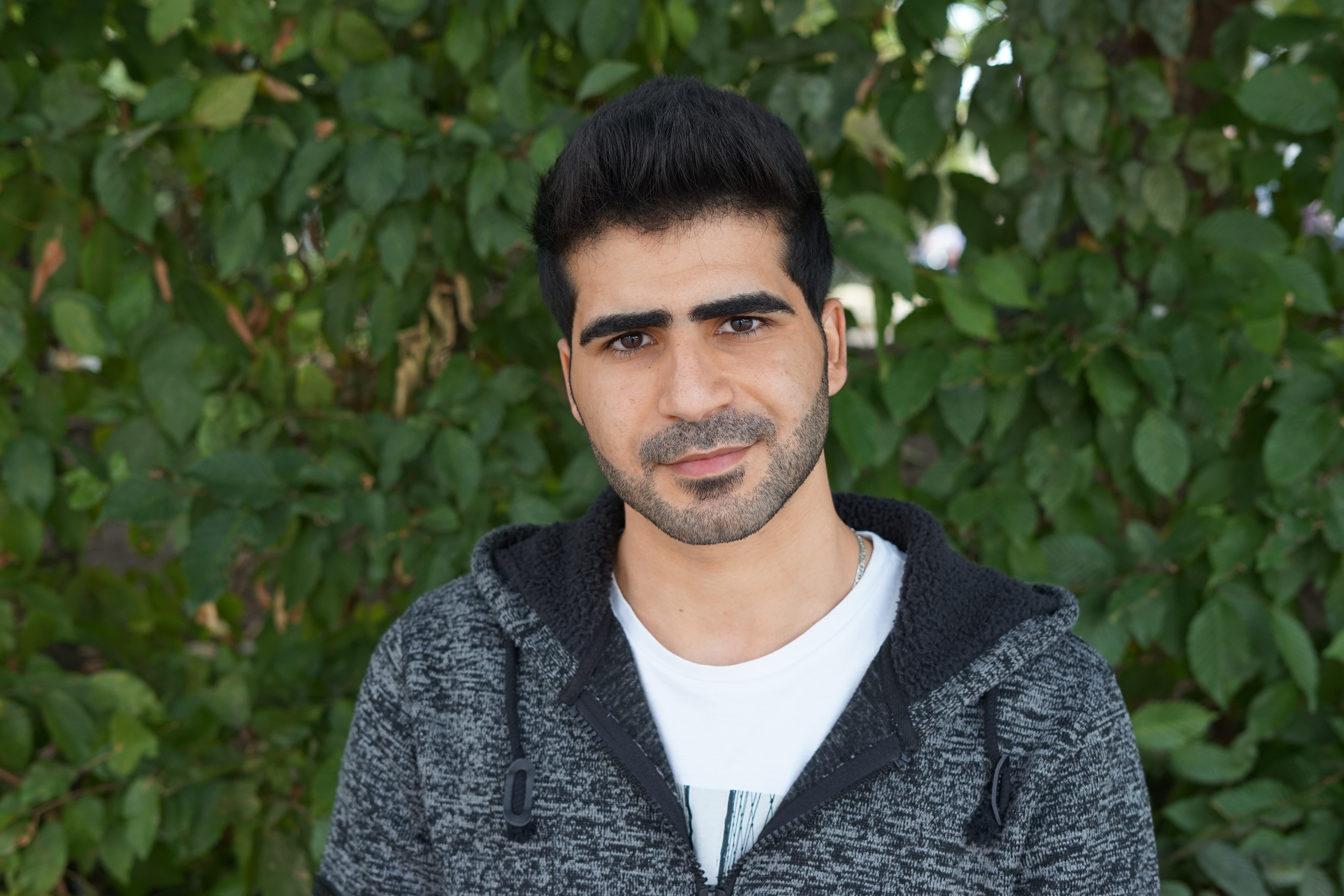
Und dennoch, als am Montag "Pro Chemnitz", die NPD, der III. Weg und andere rechtsextreme Gruppierungen mehrere Tausend Menschen zum Protestmobilisierten, standen ihnen im Stadthallenpark unter den Gegendemonstranten auch viele Migranten und andere People of Color gegenüber. Sie skandierten: "Nazis raus". Wir haben mit ihnen über die Vorfälle des Wochenendes und die rechte Eskalation in Chemnitz gesprochen.
Ahmed, 23, Geflüchteter aus Syrien
VICE: Hast du mitbekommen, was hier am Wochenende in Chemnitz passiert ist?Ahmed: Wahrscheinlich haben ein Syrer und ein Iraker auf dem Stadtfest einen Mann getötet und zwei weitere verletzt. Es war für mich schlimm, zu sehen, dass Landsleute solche Taten verüben. Am Sonntag sind Neonazis überall auf den Strassen gelaufen, haben geschimpft und wollten Flüchtlinge schlagen.
Hatte das auch für dich persönlich Konsequenzen?Vorhin habe ich per Facebook eine Nachricht bekommen, in der steht: "Geh heute bitte raus, scheiss Flüchtling. Hurensohn". Ich kenne den Absender nicht.
Was empfindest du, wenn du solche Nachrichten liest?Ich fühle mich in erster Linie schlecht. Aber andererseits: Was soll ich machen? Ich zeige es rum und fotografiere es ab. Ich bin vor zwei Jahren aus Syrien nach Deutschland geflüchtet, lerne hier und mache eine Ausbildung. Und ich kann nicht sagen, dass alle Deutschen schlecht sind. Es gibt sowohl gute als auch schlechte Leute in diesem Land, das gilt auch für Flüchtlinge. Und auch wenn Nazis durch die Strassen ziehen und Leute schlagen, ist Deutschland meine Heimat.
Richie, 18, aus Oederan, östlich von Chemnitz
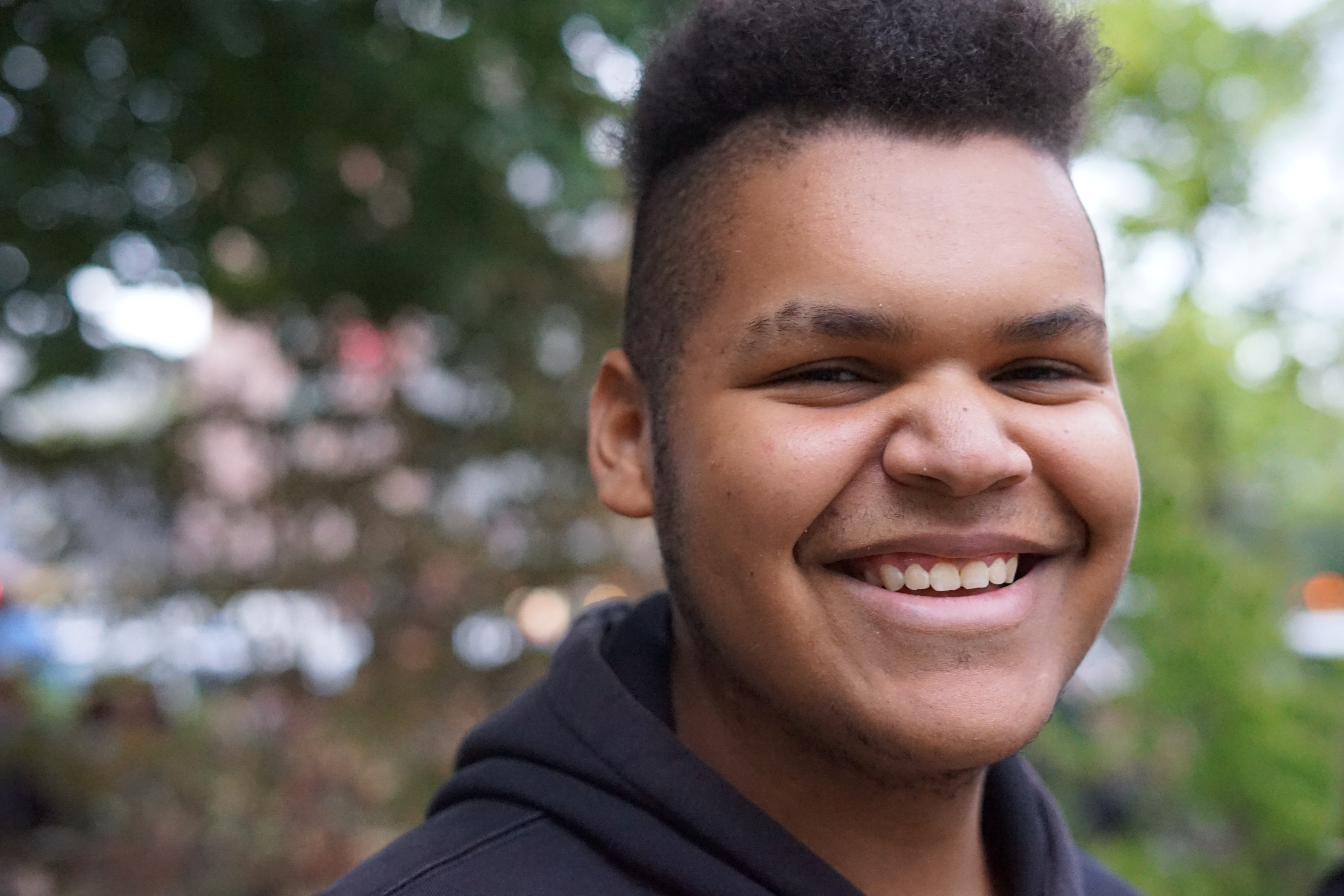
VICE: Gegen was protestierst du heute?Richie: Ich finde es nicht gut, was am Sonntag in Chemnitz passiert ist und was heute schon wieder da drüben, auf der anderen Strassenseite, los ist. Es ist nicht cool, wenn Menschengruppen anderer Hautfarbe gejagt werden, als wäre es etwas ganz Normales – und keiner macht was dagegen.
Hast du Angst?Manchmal macht man sich Gedanken, schliesslich sehen die Rechtsextremen schon sehr gewalttätig aus. Ich selbst bin zwar nicht der Kleinste oder der Schmalste bin, allerdings habe ich kleinere Geschwister. Und wenn die nach Chemnitz fahren, bin ich schon ziemlich besorgt, dass jemand mit einer dummen Gesinnung seine Meinung körperlich äussern könnte.
Wie nimmst du die Stimmung in Sachsen wahr?Es gab schon mal eine Phase, wo das ähnlich schlimm war, dann aber auch wieder Zeiten, in denen das abgeklungen ist. Jetzt gerade siehst du überall Leute mit rechten Shirts, rechten Parolen und rechten Stickern.
Wenn du den rechtsextremen Demonstranten etwas sagen könntest, was wäre das?Ich würde denen vermitteln, dass es friedliche Wege gibt, seine Meinung zu äussern. Es braucht ausserdem mehr Aufklärung, um zu zeigen, dass ziemlich viele gute Dinge wegfallen, wenn das umgesetzt würde, was die wollen. Es gibt hier etwa zahlreiche ausländische Ärzte, Restaurants oder Handwerker. Und ich würde sie mit älteren Leuten sprechen lassen, damit sie erfahren, wie das alles früher war – und dass es nicht die beste Idee ist, mit solchen Parolen um sich zu werfen.
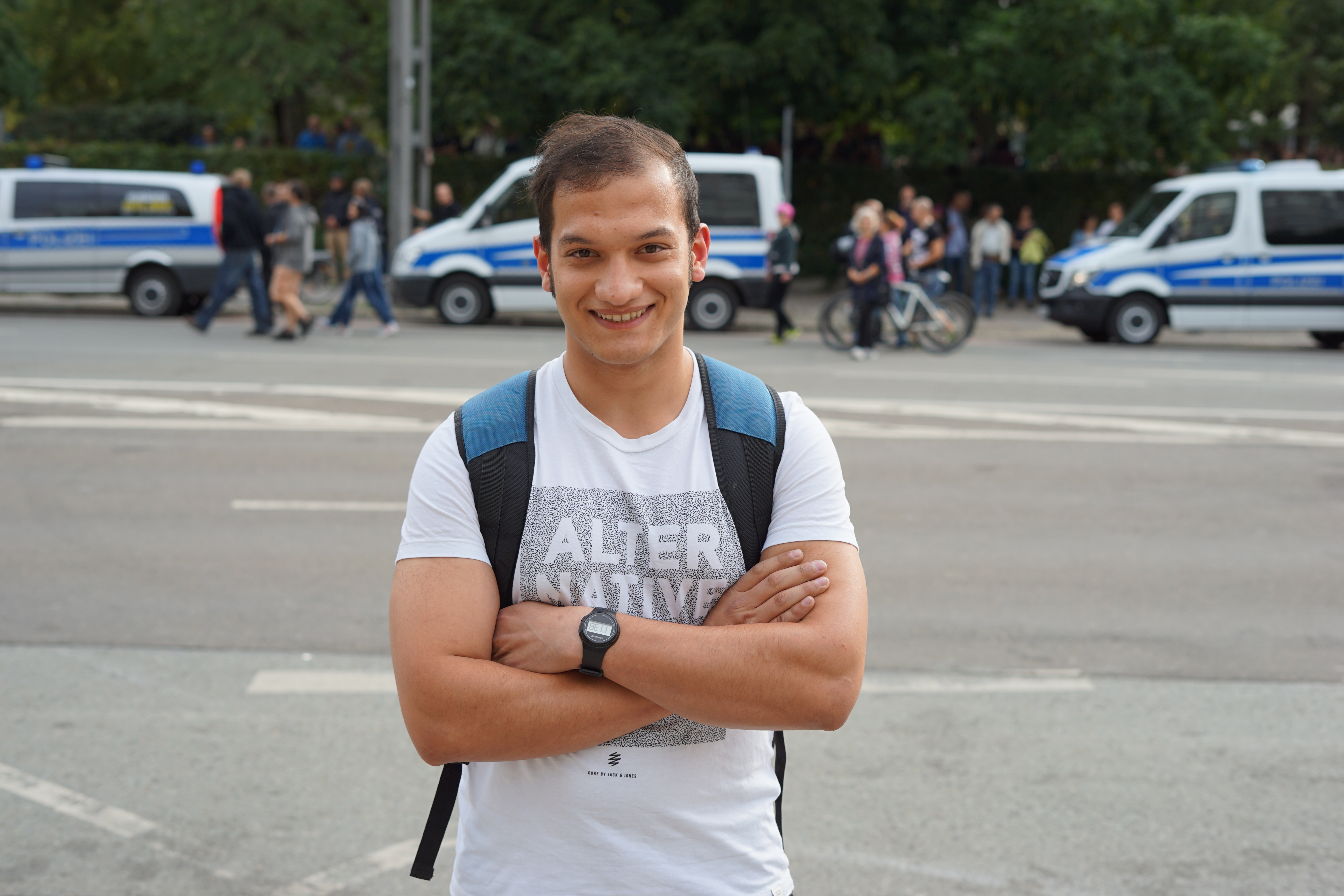
Ziya, 18, Geflüchteter aus Afghanistan
VICE: Wie geht es dir, mit dem, was hier in der Stadt passiert?Ziya: Mich macht das sehr traurig. Es gab eine schlimme Tötung, die Leute sind daraufhin durch die Innenstadt gezogen, das war ebenfalls schrecklich. Die Leute haben die Tat dafür genutzt, grundlos Flüchtlinge anzugreifen. Ich selbst war in der Innenstadt und wollte mit meiner jüngeren Schwester spielen. Dann kam ein älterer Mann auf mich zu und sagte: "Renn einfach weg, sonst werden dich Neonazis verletzen." Daraufhin habe ich meine Schwester auf den Arm gepackt und bin weggerannt.
Leute jagen Geflüchtete und rufen ausländerfeindliche Parolen. Wie verändert dich das?Auf mich hat schon einmal ein Mann einen Hund gehetzt. Ich wurde zwar nicht verletzt und habe es nicht angezeigt, aber: Ich habe Angst und das Gefühl, dass die Leute zunehmend keine Flüchtlinge mehr wollen. Sie sagen immer: "Die Ausländer haben gute Berufe. Die Ausländer kriegen gute Wohnplätze." Dann denke ich immer: Warum hast du dich selbst nicht mehr angestrengt? Warum hast du nicht in der Schule aufgepasst? Wenn du selbst schuld bist, dann ist das dein Problem.
Glaubst du, dass viele deiner Mitbürger Neonazis sind?Ich selbst mache eine Ausbildung und sowohl meine Lehrerin als auch meine Mitschüler sind nett und helfen mir sehr. Nicht alle Deutschen also sind so. Und man muss auch sagen: Deutsche haben auch oft Angst vor Flüchtlingen, weil Menschen verletzt wurden. Wenn Leute angegriffen werden, ist das immer schlimm, ganz egal ob Neonazis oder Flüchtlinge die Täter sind.
Wie könnte das Problem gelöst werden?Ich glaube, die Leute müssen sich an den Tisch setzen und miteinander reden. Aber ich denke auch, die Menschen hier wollen uns Flüchtlinge einfach nicht mehr hier haben. Dabei ist Deutschland meine neue Heimat, ich will Medizin studieren und Arzt werden. Nach Afghanistan kehre ich nicht mehr zurück.
Ahmad, 24, Geflüchteter aus Afghanistan
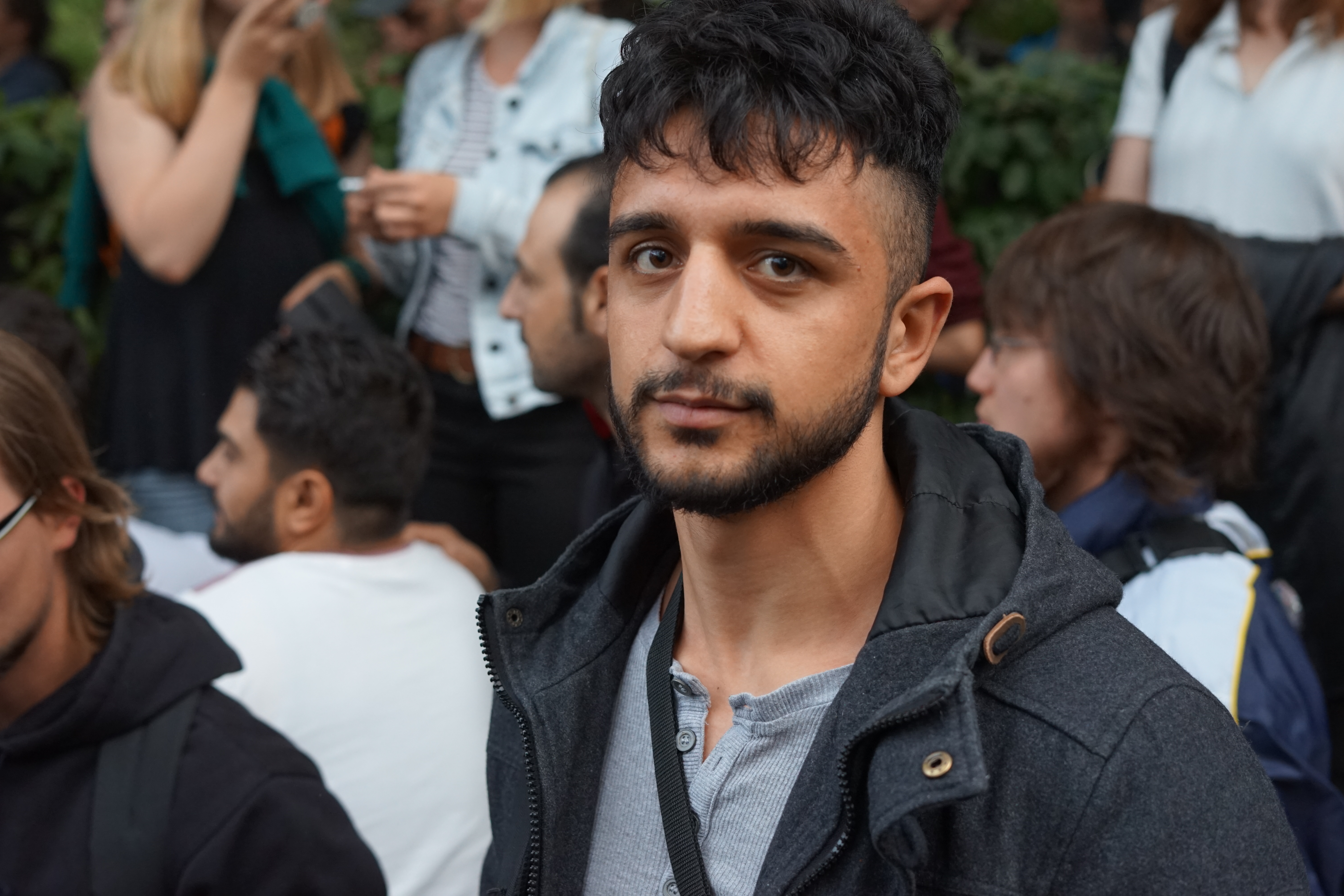
VICE: Warum protestierst du heute?Ahmad: Ich habe von dem Tod des Mannes auf dem Stadtfest gehört und bin direkt nach der Arbeit hierher gekommen. Für mich war wichtig zu zeigen: Es gibt auch andere Flüchtlinge, nicht alle sind so. Ich erkläre das immer gerne mit meiner Hand. [ streckt seine rechte Hand aus und hält sie vor den Körper]. Wir Flüchtlinge sind wie die Finger: Es gibt grosse, kleine, schräge und gerade. Es gibt also gute und schlechte. Man darf nicht verallgemeinern.
Hat sich die Stimmung in den drei Jahren, in denen du in Deutschland lebst, verändert?Ja, inzwischen werden wir pauschal verurteilt. Ich selbst habe zwar keine Angst, aber inzwischen müsste ich sie eigentlich haben. Du kannst unterwegs sein und wenn dir fünf, sechs Leute auflauern und sehen, dass du wie ein Flüchtling aussiehst, dann bist du nicht mehr sicher.
Wie stellst du dir angesichts dessen deine Zukunft vor?Ich habe eine Ausbildung in einer Apotheke als pharmazeutischer Kaufmann gemacht und will hier arbeiten. Wenn ich aber solche Szenen sehe, dann muss ich mir gut überlegen, ob ich hier weitermachen kann.
Mohamed, 38, syrischstämmig, aus Köln angereist
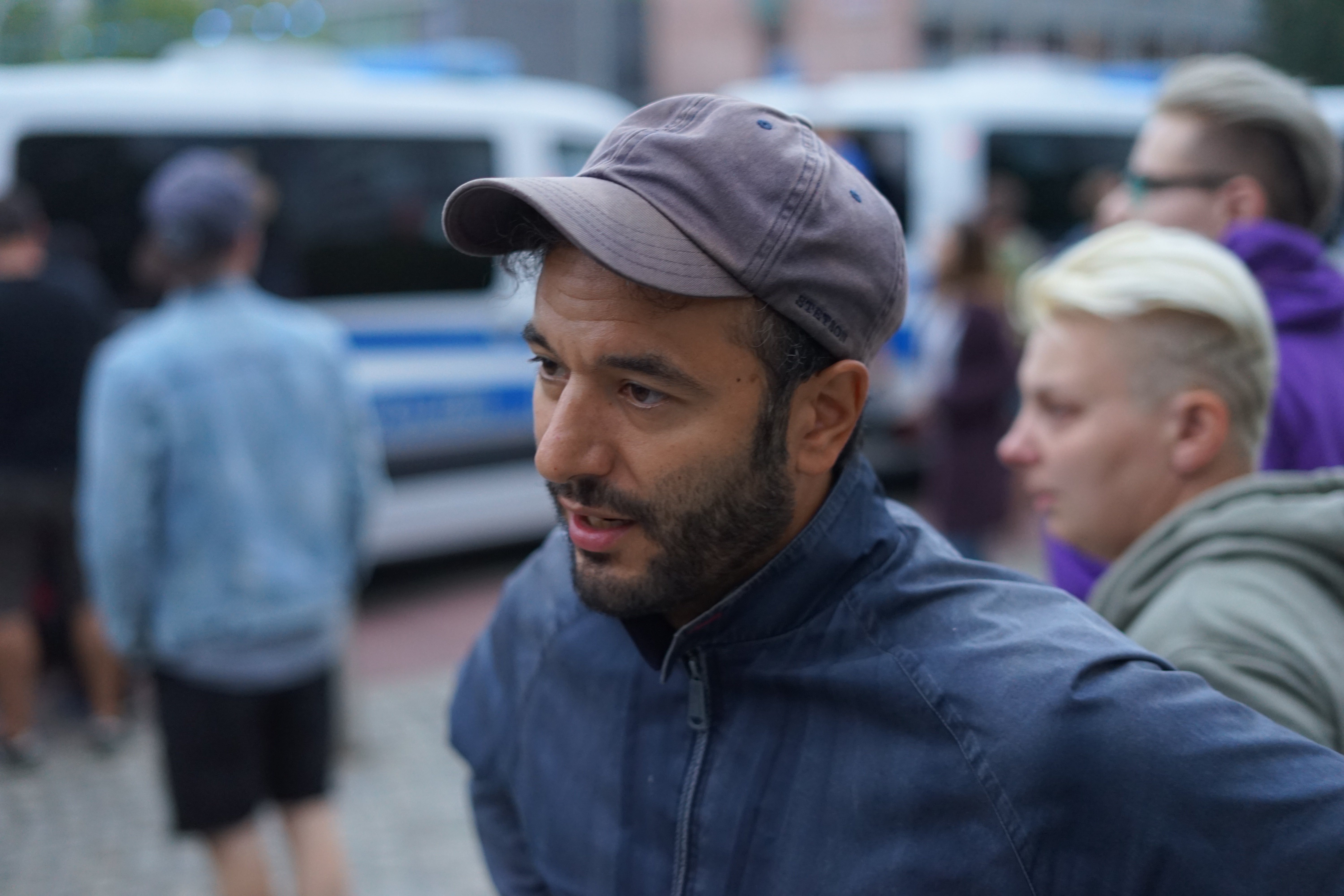
VICE: Wie hast du die Eskalation in Chemnitze erlebt?Mohamed: Ich habe am Sonntag Videos gesehen, wie Leute Migranten gejagt haben. Das hat mich schockiert. Ich habe zwei Jahre lang in Chemnitz gelebt und am Schauspielhaus gearbeitet und bin heute extra aus Köln angereist, weil glaube, es ist wichtig, Flagge zu zeigen – und zwar völlig unabhängig davon, was auf dem Stadtfest passiert ist.
Wie ist es für dich, in deinen alten Wohnort zurückzukehren?Es sind richtig, richtig viele Leute bei der rechten Demonstration. Das macht mir Angst und das besorgt mich als Bürger. Wie kann es sein, dass Sachsen so aufgegeben wird? Man hat den Eindruck, dass diese ganzen Strassenzüge, wo früher Leute gelebt haben, inzwischen leer sind. Und für mich hat dieser Rechtsruck ganz praktische Konsequenzen: Ich weiss nachher zum Beispiel noch nicht, wie ich zu meiner Karre komme.
Glaubst du, dass Leute, die sich rechtsextremen Demos anschliessen, zurückgewonnen werden können?Ich bin strikt dagegen, mit Rechten zu reden. 2015 wurde erzählt: "Ihr müsst mit den Rechten reden." Nein man, müsst ihr nicht! Als ich das erste Mal in Chemnitz ankam, standen hier Leute in Wehrmachts-T-Shirts – wie willst du die zurückgewinnen?! Stell dich mal in Essen oder Köln in so T-Shirts hin, dann kriegst du eine von rechts und links.
Was kann die Politik tun?Ich finde, dass der Ministerpräsident sich nicht hinter seinen Kindergarten-Tweets verstecken kann, sondern sich hinstellen und klar gegen Rechts Flagge bekennen muss, anstatt alles zu relativieren. Es ist vielleicht ein Tropfen auf den heissen Stein, aber das wäre ein erstes Signal.
Dieser Artikel erschien ursprünglich auf VICE DE.
Hass in Chemnitz: Die Eskalation um die rechte "Trauerfeier" im Video
VICE hat vor Ort mit Ausländerhassern und mit Geflüchteten gesprochen.
Nach der Tötung eines 35-jährigen Deutschen marschierten in Chemnitz Tausende Menschen auf. Unter ihnen waren gewaltbereite Neonazis von der NPD, dem III. Weg und militanten Kameradschaften. Die Situation eskalierte, Demonstrierende schmissen Feuerwerkskörper und Flaschen, zeigten Hitlergrüsse, pöbelten Journalisten und Journalistinnen an. VICE war vor Ort, hat mit Ausländerhassern und mit Geflüchteten gesprochen.
Dieser Artikel erschien ursprünglich auf VICE DE.

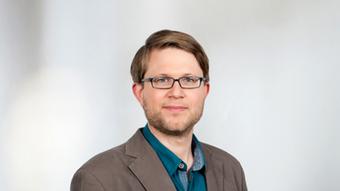

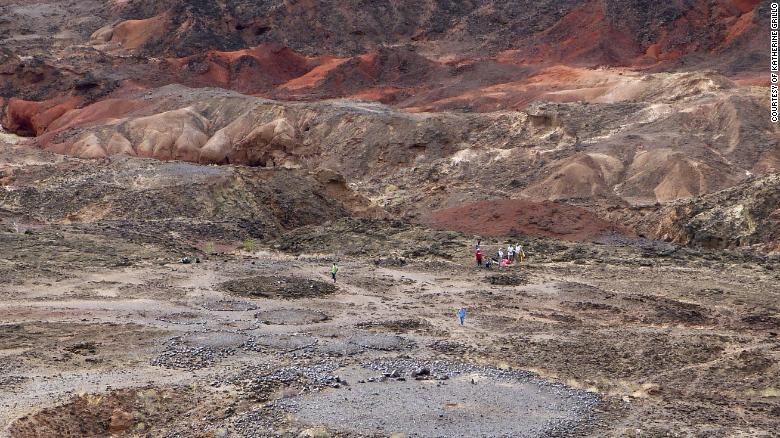
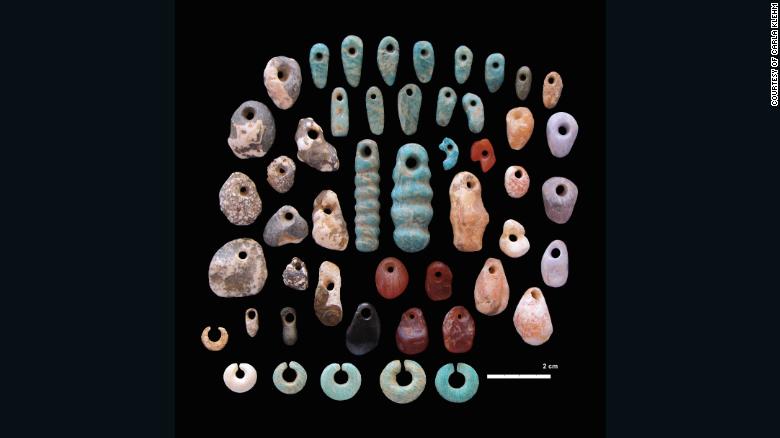
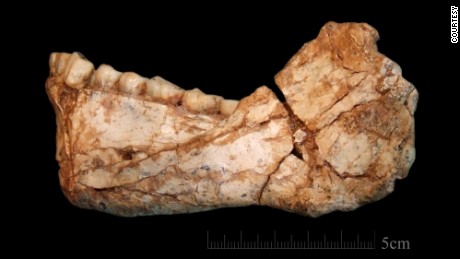
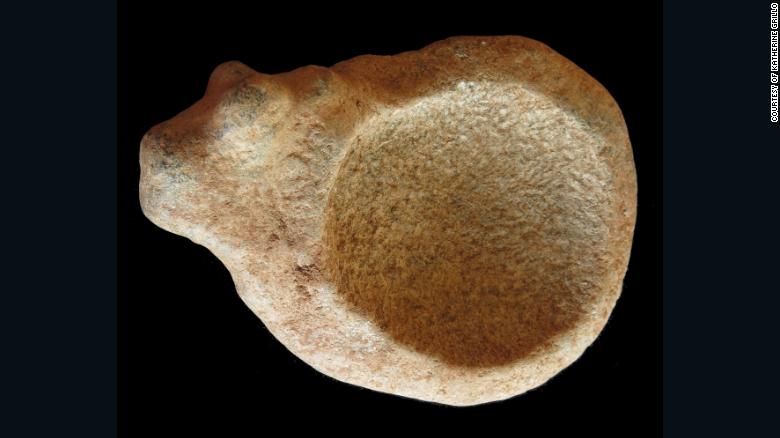
 Security officers whisk away Robert Kundu (centre), Chief Executive Committee for Sports in Kakamega County, following chaos during the burial of Likuyani MP Dr Enock Kibunguchy’s driver. PHOTO | JARED NYATAYA | NATION MEDIA GROUP
Security officers whisk away Robert Kundu (centre), Chief Executive Committee for Sports in Kakamega County, following chaos during the burial of Likuyani MP Dr Enock Kibunguchy’s driver. PHOTO | JARED NYATAYA | NATION MEDIA GROUP 


